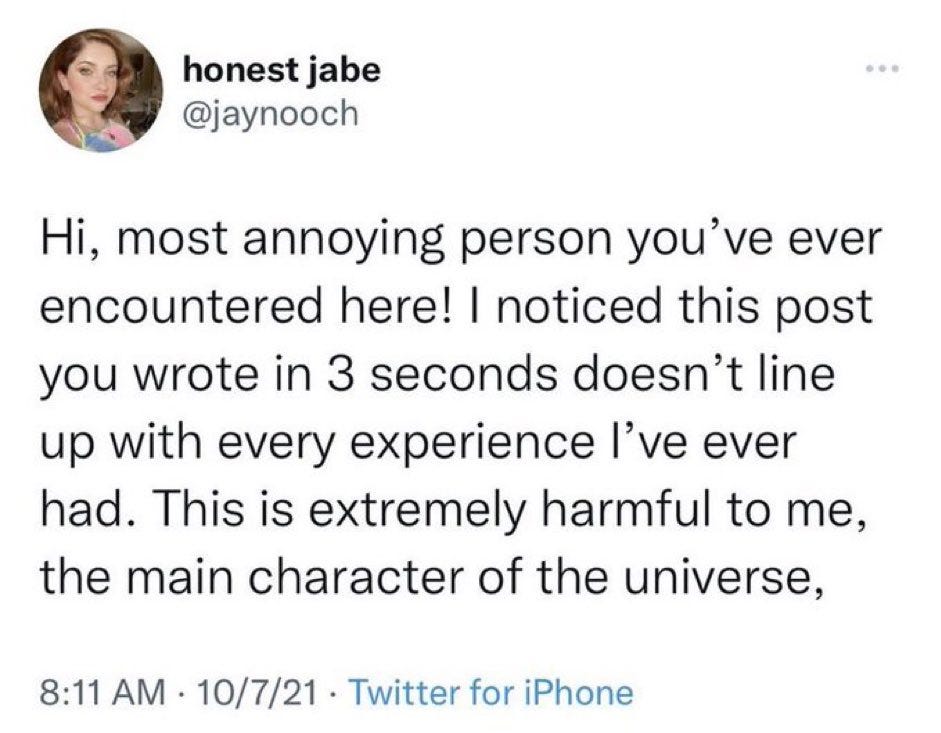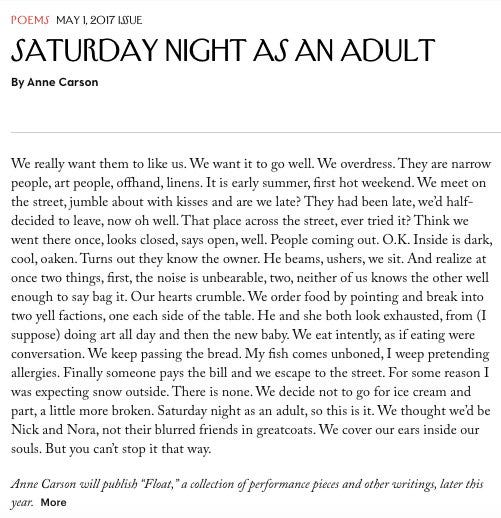everyday banality and the myth of the moment
bereal, what I do in a day videos, relatability in art, and main character syndrome
I got blocked from BeReal last week.
It was my own fault — I posted, then deleted, two snaps. They were unflattering photos taken right after waking up, and in the second there was a box of condoms clearly in view. This is too real, I concluded as I hit delete, not stopping to read the pop-up warning me that I would now be blocked from posting for twenty-four hours. I had committed the ultimate sin — attempting to re-stage my reality for an app predicated on authenticity. My punishment? A whole day gone unrecorded.
I am not the sort of person who accepts little setbacks lightly and therefore I took this poorly. A day without stalking my friends and acquaintances, without maintaining a few tenuous relationships with a carefully posed react? A day of…irrelevancy? Like a 14-year-old deprived of Snapchat, I was genuinely worried about losing my streak.
‘The problem,’ my long-suffering partner concluded after ten minutes of back and forth about this. ‘The problem is that you need everything to be a moment.’
Not just a moment, a capital-M, italicised-for-emphasis Moment. A perfectly-styled, dramatically-lit, soundtracked by a Bridgerton-esque classical-pop cover moment. The thing we strive for when we don a new piece of clothing inspired by our Pinterest, when we go to the farmer’s market, or order a cocktail, or queue for a concert, or watch the sunset. The sort of moment which is perfect — and perfectly documentable by an iPhone camera. In our social-media saturated age, when real life seems to get grimmer every day (if its not the recession or pandemic, the skies are turning red thanks to climate meltdown), we’re all in thrall to the myth of the moment.
Coincidentally, the central theme of last week’s internet discourse was exactly that. First, a TikTok entitled ‘life after college as a 28 year old with a normal job’ went viral on Twitter, with users lambasting its dull tone and depressing content — work, dog walks, and the gym, punctuated by bland, beige meals delivered from freezer to microwave to plate. The poster, Hubs (@hubs.life), who works in HR in Texas, uses his TikTok to ‘normalise the norm’, sharing videos with captions like ‘Typical Tuesday’ and ‘Saturday Vibes’ with his 140.8k followers. Although not everyone is a fan — ‘This video was so depressing that I started tearing up watching it’, one person responded.1
As with last month’s almond mom discourse, which I discussed here, I am in two minds about Hubs’s normalised norm. I get the horrified gut reaction some people have expressed, I do. Yet at the same time, I can’t help but wonder — was the day really that bad? Sure, it wasn’t thrilling, or novel, but it was a regular workday on a regular week. And it wasn’t like Hubs himself had an issue with it — he shared the same routine a few days later captioned ‘it ain’t a bad life’.
The truth is, modern life is really, really, really boring. It isn’t always exciting, or energising, or fulfilling, in fact it’s often the opposite.
Especially in the midst of a recession which has sucked the joy out of so many experiences, we’re all grappling with everyday banality. I think this is why we’re so driven to the myth of the moment. We live in a culture which encourages us to document every second of our lives, so we force ourselves to believe those seconds are worth documenting. ‘Day in my life’, ‘what I eat in a day’, ‘GRWM’, ‘OOTD’. If we can make every moment into a Moment, then memorialise it for posterity and popularity, maybe we can paper over the emptiness at the heart of modern life. Romanticising the simple pleasures of the everyday can be a powerful force for healing — the birds on your morning commute, the first bite of a fresh croissant. But when we puncture those experiences with a camera lens, reality becomes performance, and social media’s ever-present invisible audience guides our actions more than our own desires do. My morning BeReal would have been perfect — if I could have only conveyed a state of carefully constructed authenticity, a comfortable morning scene rather than two people who slept poorly in the heat, the merest suggestion of sex rather than its explicit signs.
‘I like my routine’, Hubs wrote in a follow-up TikTok after his viral moment. I relate. During my Masters, I’ve spent my weekdays following a pretty consistent 9-5 routine. I’d go to the gym before heading to the library, having packed myself lunch the night before, then return home around 6 to eat dinner and unwind. It’s a running joke among tutors, friends, and classmates that I can always be found at the exact same library desk. When someone else dares to take it, I feel a deep unease only remedied by a Missing Bean coffee or a Bird and Blend matcha. God forbid I try somewhere new. To be honest, my life has very few capital M moments. But I don’t think that devalues it, or makes it depressing. I’ve found beauty in routine, whether that’s the inner peace of a 6am start midwinter, or the way the light hits the bookshelves beside my preferred desk.
Is there anything wrong with liking routine? It’s not for everyone, sure, and I have massive respect for people who freewheel through life (i.e working in a cafe one day and a library the next). There’s plenty to be said about the oppressive nature of 5 day, 9-5 jobs. But if personalised correctly, routine can be healthy, helping cushion us from the realities and hardships of life, and allowing us to make time for the things we love, whether that’s an overpriced matcha or time with your pet. Several commentators suggested that Hubs’s routine was depressing because it lacked purpose or pleasure — but he literally spent two hours playing with his frankly adorable dog. Yeh, sure, Hubs could use his free time to cook elaborate three course meals rather than reheat freezer flatbreads, but maybe he doesn’t want to. Maybe he chooses to spend time with his dog instead. And just because he didn’t film his interactions with colleagues, friends, or wife, doesn’t mean they didn’t happen; maybe he just likes peace and quiet on the weekdays, or maybe he doesn’t want to stick a camera in their faces. Maybe his wife works late. As I noted in my last post, people are allowed to have different desires and priorities, and we aren’t owed their whole life story based off a one minute video.
I did find the video depressing, though. In my view, this had more to do with its shooting, editing, and attempt at maintaining a ‘lifestyle’ aesthetic than it’s actual content. Why the blank facial expressions, why the lifeless music, why the lack of other people, of the outside world? Why depict routine as monotonous and constricting rather than a simple framing device for experiencing the world? Most importantly — why all the greige?! I do think the video speaks to the social and economic cage of modern life under capitalism, but I think the broader issue is the way in which social media has changed our relationship to our own lives, and the lives of others.
The Tom Ford coffee table book, the Daiya flatbread, the Stanley Cup. Maybe Hubs is normalising the norm, but he’s engaged in a project he shares with your average influencer, with their Dyson blowouts and VIP invites. This is a carefully calculated vision of routine, rather than routine itself. It’s aesthetics above all else. It’s lifestyle over life. It’s living for the memory of the moment, not the moment itself. It’s not just memorialising the moment, it’s monetising it.
We want so badly to believe we, as individuals, as users, as consumers, as creators of the content of our lives, matter. That everything we do is meaningful. That we are forever moving through perpetual moments, always ready for the BeReal notification to go off and capture us in time. There’s a term for this — main character syndrome.
The older I get the more I realise it’s a myth. Our lives do matter, obviously, but social media warps our perceptions of everyday life and skews our sense of scale. People of my generation have been told we can do anything, be anything, have it all, especially during the girlboss era of feminism. That notion has come under fire recently, but the social media culture of the 2020s tells us just as insidious a lie — that we’re the main character, that our story is the key plot and everyone else is just a side character, or worse, an NPC. Selfishness is cool, irony is cool, cyberbullying (for want of a better word) is cool. The cult of the individual has never been stronger, and the idea of the Moment is part of its mythos.
Both Hubs’s video and the reaction to it speak to a lack of imagination. An unwillingness to look beyond personal experience seems to be the defining feature of the internet today, a deep irony given social media’s early utopian mission, the desire to connect strangers and bridge divides. At the same time as Twitter was kicking off about Hubs’s ‘life after college’, Anne Carson’s poem ‘Saturday Night as an Adult’ was receiving unexpected critical attention.2 If you can call lazy readings, ‘lol, no’ style reacts, and a total lack of empathy criticism. The poem, which begins ‘We really want them to like us’, relates the adult speaker’s unfulfilling dinner out with a pair of not-quite-friends. At the end of the dinner, the friends ‘part, a little more broken. Saturday night as an adult, so this is it.’
Anyway, the internet hated it.
I won’t discuss the backlash at length here, in part because I find the lack of media literacy and critical thinking skills involved frustrating — the outgrowth of ‘sometimes the author just wanted the curtains to be blue’ style analysis with a peculiarly American tinge. (Sidenote: I was not expecting Anne Carson to become the internet’s public enemy number one. The internet has always loved Anne Carson! Or maybe I need to go back to Tumblr.)
Under the cult of the individual and the myth of the moment, the primary mode of experiencing art has become relatability above all else. If a poem doesn’t line up exactly with one’s expectations, it must be bad. This is a comfortable fiction to indulge in, when you encounter something challenging. On social media, its particularly easy to treat a poem like just another tweet, to be liked or ignored, or maybe QRT’d with your personal hot take. Except art will not always speak to your personal experience. That’s not the point! Art should challenge us, provoke us, open our eyes. Make us attentive, to paraphrase Mary Oliver, who understood perhaps better than anyone else the value of a human life lived in scale to nature. Why did this poem cause so many people online to close their eyes?
Like so much good art, ‘Saturday Night as an Adult’ contains a truth which the reader, like the speaker, doesn’t want to hear but must.
Modern life is scary. It is oppressive, and it is unfulfilling. There is beauty in it, if you look for it, whether that’s in routine or wild abandon. There are moments of joy and wonder and love and awe. But there is also, as Carson reminds us, ennui. Tedium. Lethargy. Repetition. Days which seem without end. In which you will not be the main character, perhaps not even a speaking role, just ‘their blurred friends in greatcoats'. Moments which seem unrecordable, which do not need to be recorded, BeReals which are all the same. Moments where you want to stand up and shout the oldest of questions — is this all there is?
It’s not a question we’ll ever find an answer for. But looking for one can help us find more, make more of our lives. On the internet today, we’ve given up that search. Rather than going out into the world, into the lives of others and the core of our own lives, rather than embracing reflection and retrospection, rather than finding love and community, rather than experiencing true, unfiltered reality, we reach into our pockets. We get out our phones, and start shouting about it.
So this is it.






i'm so glad this post popped up on my feed - i've been thinking about this a lot lately, and your writing is so sharp and clarifying. thank you <3
such a lovely read. thanks for linking this in your recent post <3